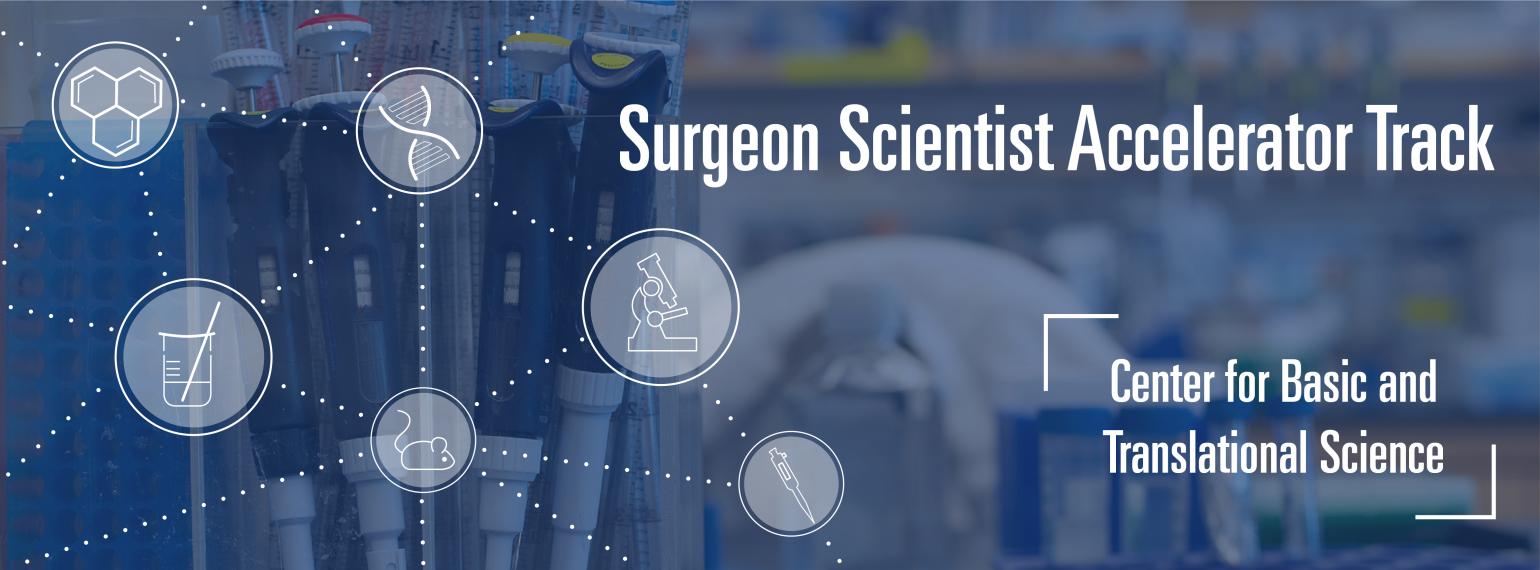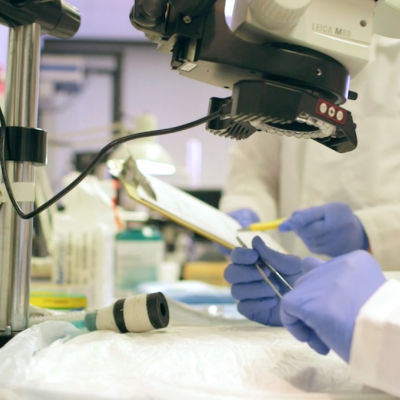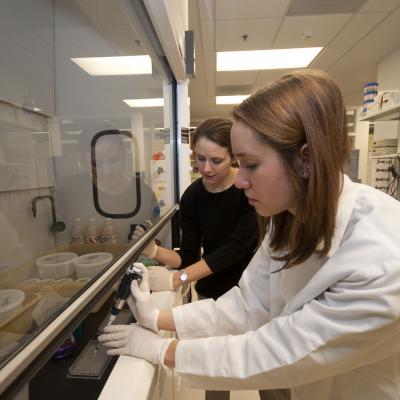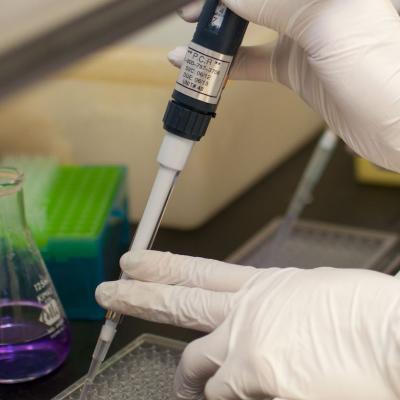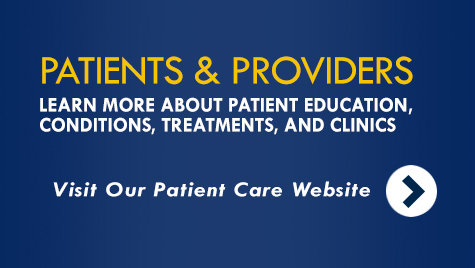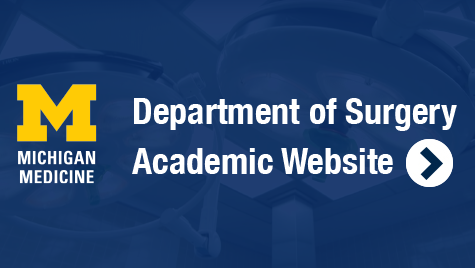Our residency programs include two years of protected Academic Development Time (ADT) for scientific research. It’s a unique feature of our training that allows residents to dive deeper into relevant academic interests. It can be challenging to maintain momentum on projects once clinical training resumes, and the program aims to remove barriers to research progress.
Program Goals:
- Promote research continuity with the assistance of a full-time technician
- Increase research productivity for basic science trainees
- Encourage trainees to move toward autonomy
- Develop mentorship and leadership skills
CBATS invites residents in the basic and translational sciences who are in their second year of ADT to apply for the support of a full-time technician to support their research for one year while they complete their clinical work.
Before returning to clinical training, residents will train the technician, who will work solely toward completion of the resident’s work and initiate new projects as possible. Residents may apply for a second year of technician support if needed.

